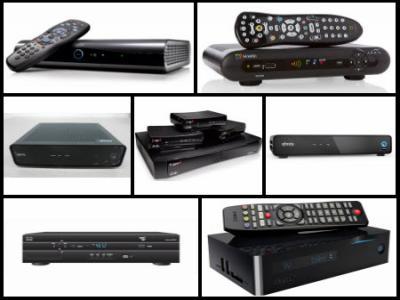-
Tips for becoming a good boxer - November 6, 2020
-
7 expert tips for making your hens night a memorable one - November 6, 2020
-
5 reasons to host your Christmas party on a cruise boat - November 6, 2020
-
What to do when you’re charged with a crime - November 6, 2020
-
Should you get one or multiple dogs? Here’s all you need to know - November 3, 2020
-
A Guide: How to Build Your Very Own Magic Mirror - February 14, 2019
-
Our Top Inspirational Baseball Stars - November 24, 2018
-
Five Tech Tools That Will Help You Turn Your Blog into a Business - November 24, 2018
-
How to Indulge on Vacation without Expanding Your Waist - November 9, 2018
-
5 Strategies for Businesses to Appeal to Today’s Increasingly Mobile-Crazed Customers - November 9, 2018
FCC to Vote on Set-Top Box Competition Proposal
Several sources report Thursday that the Federal Communications Commission (FCC) has approved, by a 3-2 vote, a proposal to phase out the prevailing, pricey, consumer-hostile set-top box regime, allowing consumers to shop for and purchase their own devices.
Advertisement
But the proposal has rankled the pay-TV industry, which the FCC says brings in about $20 billion a year from renting the boxes. While cable and satellite TV providers would retain control over their content, many are still reluctant to provide Apple or other companies with any control over how and where it is displayed.
In all likelihood the proposal will pass in a party-line vote, with Democratic Commissioners Mignon Clyburn and Jessica Rosenworcel backing Chairman Wheeler.
If you are a Comcast or Time Warner Cable subscriber, you’re familiar with that trapped feeling: you don’t really have any options to get cable besides your set-top box, and the customer service pains and high costs that go with it. According to a United States senate study, subscribers spend an average of $231 a year-or $19.25 a month-just to rent these boxes from their cable companies.
“We welcome a thorough vetting of the FCC’s flawed AllVid proposal through the agency process”, said the Future of TV Coalition, comprising cable operators, studios and others. Another vote will determine the finalized rules. The FCC has said its proposal sets standards and doesn’t specify devices or software.
“As an added bonus, the FCC will have to establish an enormous regulatory infrastructure to create and oversee this new technology mandate that involves the creation of new technology standards and standards bodies”. “The issue is whether you are forced to rent that box every month, after month, after month”. The proposal requires cable companies to give alternative providers access to cable programming.
Wheeler has complained about the cable industry and its lack of choice before. That’s one argument being made by proponents of a push for competition in the market long locked-up by the cable companies.
“This issue is not complex”, Wheeler says, noting that the 1996 Telecommunications Act “explicitly instructed us to assure that there are competitive information devices, be it a box or an app”.
Advertisement
You should be able to choose your TV set-top box the same way you pick a smartphone. On top of everything else, the plan could save consumers hefty cable-box rental fees – which now total an estimated $20 billion a year. They pointed out that the video marketplace was already undergoing changes towards streaming internet video from the traditional pay TV services, known as cord-cutting. Interested parties will now be able to comment on the proposal, and the commission will have to vote again before they are adopted. Ed Markey (D-Mass.) and House Communications Subcommittee ranking member Anna Eshoo, there were letters of concern about contracts, copyrights and impact on independent programming from legislators on both sides of the aisle.




























